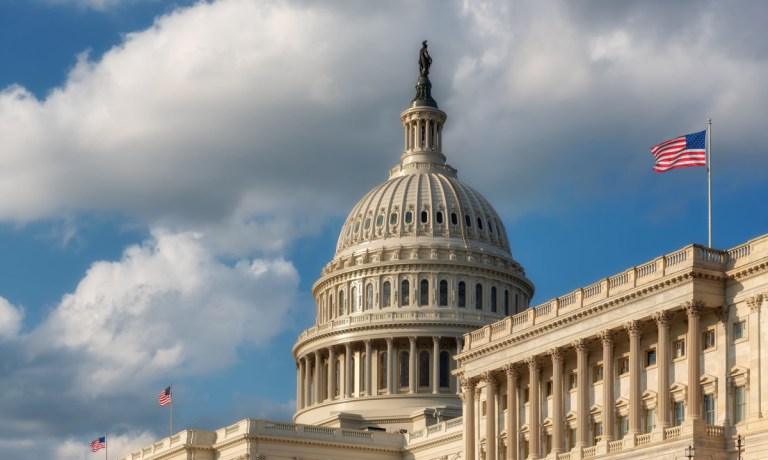Lawmakers Lobby for One-Size-Fits-All Regulations for Banks and FinTechs

Among the central debates of regulation, what we might term even the jurisdiction of the regulators — no matter the industry — might boil down to a stark question:
States versus federal — as in should the states be the mainstays in regulating banks and FinTechs as they continue to pair up and deliver digital products and services to their customers? Should the giant regulatory agencies take the lead with sweeping frameworks? Or should there be a joint dialogue?
Warning of ‘Undue’ Scrutiny
The debate has been highlighted by news that Republican members of the House Financial Services Committee have said in a letter to regulators at the Federal Reserve Board, Office of the Comptroller of the Currency (OCC), and Federal Deposit Insurance Corp. (FDIC) that “undue regulatory scrutiny” will stifle innovation that would be realized by bank-FinTech partnerships.
The letter focuses on the request for information (RFI) issued by the regulators in July on those partnerships.
“As the RFI highlights, there are many different types of bank-FinTech partnerships with varying complexities,” the letter said. “Regulators should understand the nature of each type of partnership to avoid stifling innovation. Regulation and supervision should be appropriately scaled to address the nature of the partnership, not a one-size-fits-all approach … Regulators should also be cautious not to overstep statutory authority. Instead, regulators should collaborate to identify any existing gaps in authority and work with Congress.”
The lawmakers, which included House Financial Services Committee Chairman Patrick McHenry of North Carolina wrote that “communication with state banking regulators should be strengthened. More often than not, it is state regulators who charter many FinTech partner banks. Their insights are critical during the examination process having been on the frontline of innovation. Regulators can learn from their approach to safety, soundness and consumer protection, including through the creation of regulatory sandboxes at both the state and federal level.”
The letter warned of “heavy-handed and unclear examinations of FinTech partner banks.”
The joint efforts by the regulators, in the detailing of the request for information, sought insight through a commentary period that ended in September on the bank-FinTech pacts where “although these arrangements may provide benefits, supervisory experience has highlighted a range of risks with these … arrangements.”
Nellie Liang, undersecretary for domestic finance at the U.S. Treasury Department, said in a speech last month that a federal regulatory framework would include “key foundation elements” spanning financial resources, risk management and activities restrictions governing domestic payments.
“A federal payments framework that includes the key foundational standards discussed above can both simplify our domestic regulatory patchwork and make the regulatory framework more robust,” Liang said. “We can promote innovation and competition, while better protecting consumers, the payment system and the financial system. We can create a more level playing field domestically and also support U.S. global financial leadership.”
Not Just a Bank Issue
Elsewhere, as noted commentary from the Bank Policy Institute and The Clearing House this week, these “partnerships can foster innovation and opportunities in new markets that banks may not otherwise have access to — and, in doing so, FinTechs can help banks extend their geographic reach and diversify their deposit and credit portfolios… The characteristics that give rise to risk in the ‘as-a-service’ relationships generally are not materially different from bank relationships with third parties more generally that are addressed under existing bank regulatory and supervisory frameworks. Accordingly, existing bank-oriented guidance and rules need not be significantly reinvented to specifically address these bank-FinTech partnerships.”
The BPI and TCH further said in the letter: “We believe the combination of direct agency oversight of FinTechs (including by the CFPB, where appropriate under the existing legal framework) and consumer education are imperative to achieve our shared goal of effective FinTech risk management. The current approach, in which the agencies place all responsibility for ensuring appropriate FinTech risk management on the banks, suggests that compliance is primarily a ‘bank issue’ and need not be a major concern for the FinTech.”

